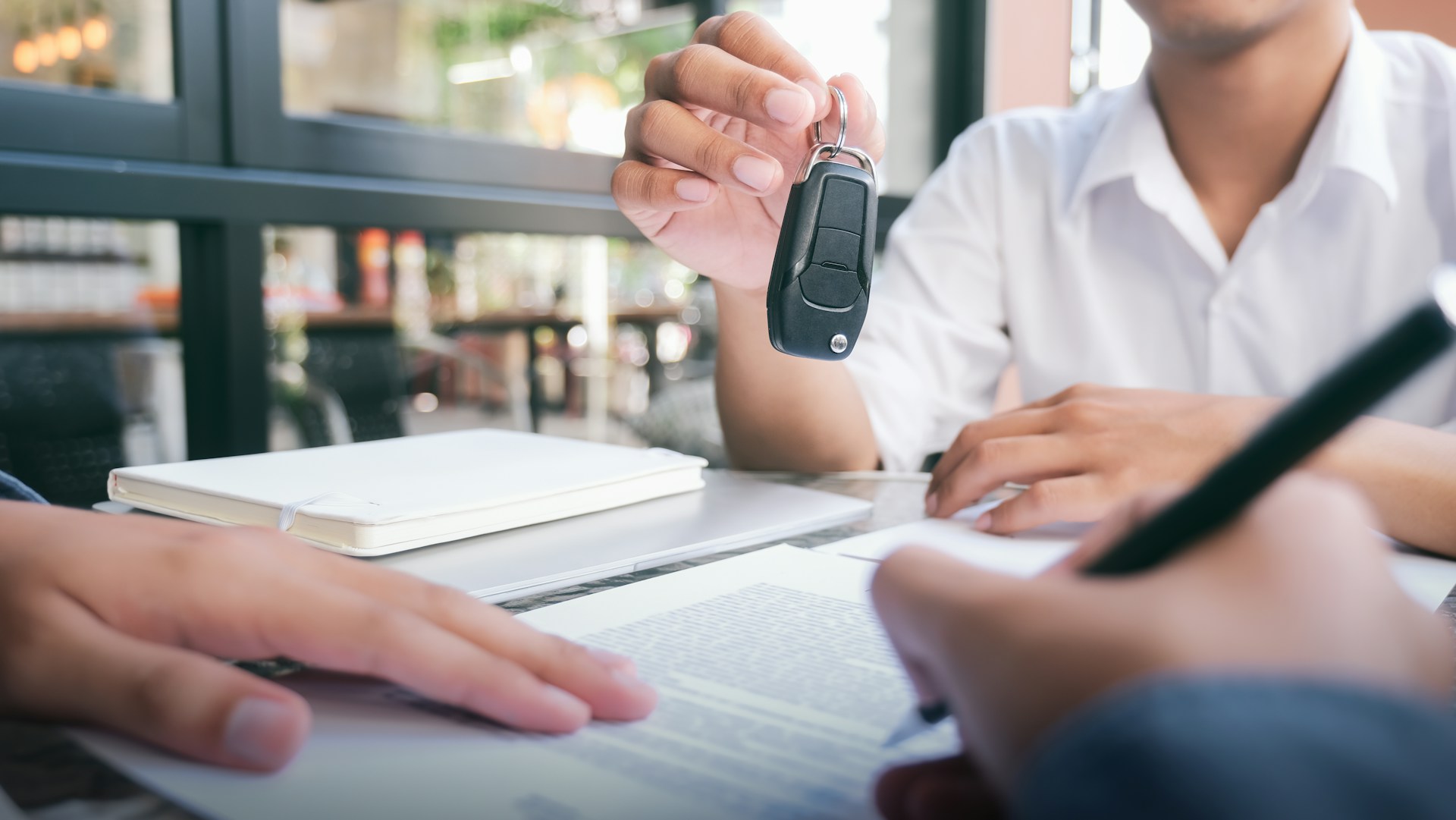
Zelle was made for small transfers between friends and family, not car transactions. Low weekly transfer limits make Zelle a bad option for buying and selling private-party cars.
If you’re looking for a mobile payment solution for high-dollar car vehicle transactions, keep reading to learn about a better option—but first, let’s dive into Zelle.
Zelle is a digital payment service that uses an API-based infrastructure to connect bank accounts for peer-to-peer money transfers. Payments are instant and Zelle doesn’t charge any fees.
Here’s how a buyer could pay for a car with Zelle (if the car is super cheap):
Seller receives the funds: The seller gets paid for the car immediately.
The process is quick and free, and the transaction can occur any time, any day. Sounds like the perfect digital payment platform for car sales, right? It would be, if:
Low transaction limits cripple Zelle for most car sales. If the buyer’s bank is attached to the Zelle network, their daily transfer limits range between $2,000 and $5,000, and their weekly transfer limits cap out at between $10,000 and $20,000. These limits are banks specific, so buyers who want to use this method need to confirm their limits with their bank.
But it gets a lot worse. Buyers who use Zelle as a standalone app (the bank isn’t in Zelle’s network) are stuck with a paltry $500 monthly payment limit. For buyers looking to pick up an old beater, Zelle can be a convenient option if both parties already have accounts and the buyer’s bank is part of Zelle’s network, otherwise, Zelle is a no-go.
Keep reading to discover a new, better digital payment solution without transaction limits. But first, we need to talk about Zelle’s other big shortcoming in private-party car transactions.
When two strangers meet for a car transaction, they run into a catch-22: the buyer doesn’t want to send money until they get the car (or at least have some guarantee they will get it), and the seller doesn’t want to hand over the car until they get paid.
No one wants to end up holding the short end of the stick. When exchanging large amounts of money, this issue becomes exacerbated because each party feels the increased incentive of their counterparty for bad behavior, however unlikely it might be.
To solve the trust problem, many people turn to escrow services. Escrow acts as a neutral third party that holds the buyer’s funds until the terms of the sale have been met. They are effective but operate on percentage-based fees that add up and require a lot of time and coordination.
A bill of sale creates accountability within private transactions. It’s a legally binding document, signed and countersigned by both parties. Should either party have dishonest intentions, the counterparty has a document that would prevail in court.
With a printed bill of sale, two vulnerabilities exist:
A digital bill of sale—stored in the cloud, signed and countersigned under both parties’ verified identities—overcomes these vulnerabilities. That’s where DealNow comes in.
DealNow gives you the convenience and immediacy of Zelle without the downsides. We overcome the catch-22 of trust with a digital bill of sale and a secure, guided workflow. Here’s what you can expect when you use DealNow:
DealNow gives you the tools to safely, quickly, and effortlessly finish a private-party car transaction.
Zelle isn’t very risky for sellers. Accounts are tied to users’ bank accounts, so it is difficult for scammers to hide their identities. Zelle’s main downside for sellers is its low transaction limits.
The app is designed for payments between friends and families. Most users can’t send more than $2,000–$5,000 per transaction. Zelle’s simplicity works well for casual transactions, but it’s not meant for business or private-party transactions.
For a safer, more efficient way to conduct high-dollar sales, turn to DealNow. Our platform is built specifically for large transactions, offering instant payments, identity verification, and limitless transaction sizes.
While Zelle is widely available, it’s not universally integrated. Major banks like Chase and Wells Fargo offer Zelle, but many smaller regional and community banks have yet to adopt it. Zelle partners with over 2,000 financial institutions, but that still leaves many banks out of the loop.
Before using Zelle, verify that your bank and your counterparty’s bank support it.
Zelle itself doesn’t charge fees for transferring money between participating banks. Some banks impose their own fees for Zelle transactions, especially for business accounts or higher-value transfers.
Zelle requires direct integration with a bank account to transfer money. It doesn’t support credit cards, PayPal, or other non-bank payment methods. Both the sender and recipient need bank accounts to use Zelle.
The safest form of payment when selling a car is DealNow. We do instant, verified transfers of any amount directly between buyers and sellers. Both parties verify their identity and link their bank accounts.
With DealNow, you get the immediacy of physical cash with Venmo-like mobile simplicity. Funds are held in FDIC-insured accounts with easy offboarding to your regular bank.
While escrow services add security to transactions, they are slow and expensive. DealNow provides escrow-like protection with the speed of a digital transaction. The DealNow platform verifies identities, confirms funds, and has both parties sign a digital bill of sale before the buyer transfers funds.
DealNow is the best form of payment when buying a car. We do instant, verified transfers of any amount directly between you and the seller.
DealNow’s platform secures transactions by:
With DealNow, you get the immediacy of cash with Venmo-like mobile simplicity. Funds are held in FDIC-insured accounts with easy offboarding to your regular bank.
These payment methods have more downsides than they’re worth:
DealNow gives users Venmo-like transaction speeds, bank-like security, and unlimited transaction sizes for a low, flat fee.